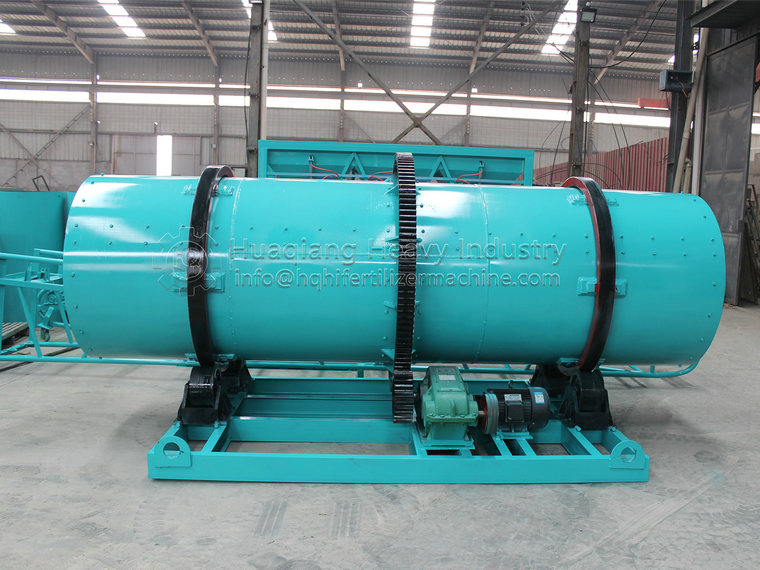On the production line of NPK fertilizers (nitrogen phosphorus potassium compound fertilizers), the commonly used types of fertilizer granulators mainly include drum granulators, disc granulators, and extrusion granulators. Among them, rotary drum granulators and extrusion granulators are common choices in NPK fertilizer production because they can handle the high mixing ratios and complex components required for NPK fertilizers, while ensuring the uniformity and stability of the particles. Below are the characteristics of these two types of granulators:
Drum granulator:
The rotary drum granulator achieves the granulation process through a rotating drum shaped container. The raw materials roll in the drum, and appropriate amount of water or binder is added through the spray system to gradually agglomerate the raw materials into particles. The rotary drum granulator is capable of processing highly viscous materials and is suitable for the production of NPK fertilizers, as it can effectively control the size and shape of particles while ensuring uniform distribution of fertilizer components.
Due to the complex composition of NPK fertilizers, the rotary drum granulator has become the preferred choice for NPK fertilizer production lines. It can process high concentration raw materials while controlling particle size and density by adjusting the drum speed and water spray system.
Squeezing granulator:
The extrusion granulator squeezes the raw material into strips through a pair of rollers (opposite rollers) that rotate in opposite directions, and then forms particles through cutting. This granulation method is suitable for dry or semi dry materials and can produce particles with high hardness and regular shape.
For NPK fertilizer production, the extrusion granulator can provide high-density, high-strength particles, which helps stabilize the fertilizer during transportation and storage. At the same time, the high production efficiency and particle uniformity of the extrusion granulator are also one of the reasons why it is popular in NPK fertilizer production lines.
The choice of granulator mainly depends on the production requirements, raw material characteristics, production scale, and cost considerations of NPK fertilizer
If high-density and high-strength particles need to be produced, and the raw materials are relatively dry, an extrusion granulator may be a better choice.
If the raw material contains high moisture or requires the addition of liquid binders during the granulation process to promote particle formation, a rotary drum granulator is more suitable.
Considering the complex composition of NPK fertilizers and the need to ensure uniform distribution of ingredients, the mixing capacity of the rotary drum granulator gives it an advantage in this regard.
In actual NPK fertilizer production lines, a combination of drum granulators and extrusion granulators may be used based on specific needs and raw material characteristics to achieve optimal production efficiency and product performance. In addition, other aspects of the production line, such as raw material pretreatment, drying, cooling, and packaging, also have a significant impact on the quality of the final product. Therefore, the comprehensive design and optimization of the entire production line are crucial.